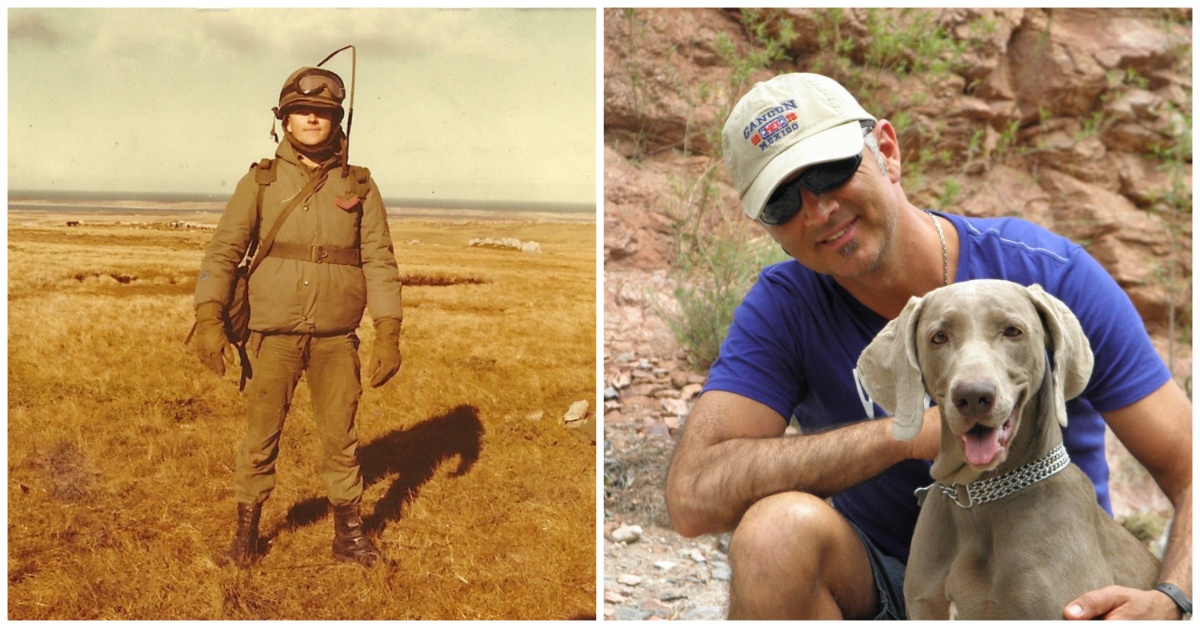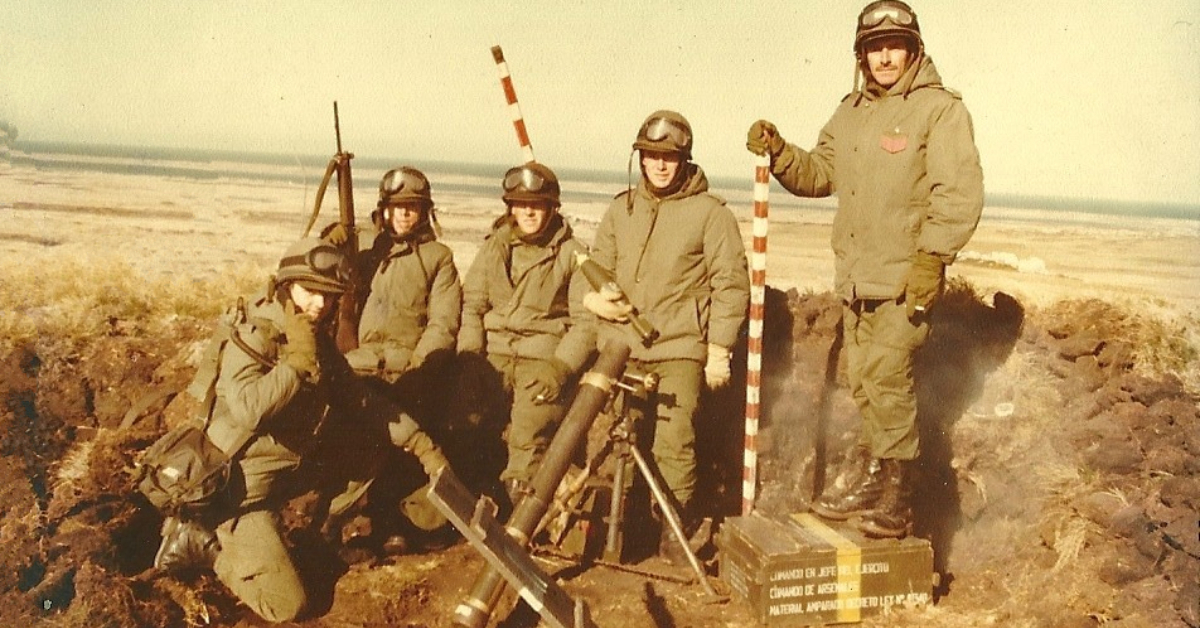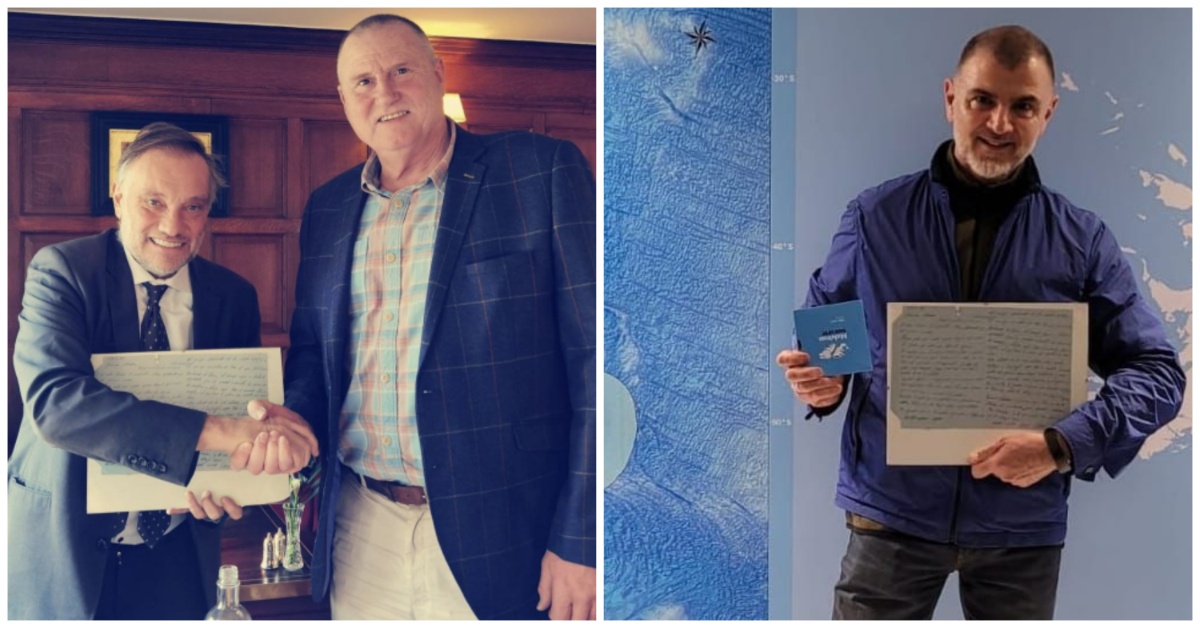A handwritten letter found in the aftermath of the Falklands War 40 years ago has been reunited with the Argentinian soldier who wrote it, following the intervention of the Argentinian ambassador to the UK.
As previously reported by The Stray Ferret, the blue-coloured airmail letter – known in the armed forces as a “bluey” – was found around a year after the end of the Falklands War by Jim Phillips, who was posted to the Falkland Islands’ capital, Port Stanley, as a lance corporal in the Royal Engineers.
It had been written by an Argentinian soldier during the war but had never found its way to the intended recipient.
Jim said:
“The letter was actually posted in Port Stanley during the war, but it never got out because we’d bombed the runway.”
Jim, who now lives in Ripon, kept the letter but mislaid it during a house move. It came to light again just before Christmas 2022, and he immediately contacted the Argentinian Embassy in the hopes of reuniting the letter with its writer.
Jim, now 64, met the Argentinian Ambassador, Javier Figueroa, in March and handed him the letter over lunch at Grantley Hall, near Ripon.
Mr Figueroa, who has long taken a special interest in the Falkland Islands and last year said the war had been “a tragedy”, promised to do everything he could to ensure the letter got back to its rightful owner, named as a Corporal Balbuena, a conscript in Argentina’s 3rd Mechanised Infantry Regiment.

Then and now: Corporal Danny Balbuena on Sapper Hill in the Falkland Islands in 1982, and today in Buenos Aires with his dog. PHOTOS: Danny Balbuena.
And now, after a “postal delay” of 40 years, the letter has finally been returned to Mr Balbuena, who is now retired and lives in Buenos Aires. In a message last week, Mr Figueroa wrote:
“We hereby want to inform you that the original letter written by the Argentine soldier has reached its original hands in Argentina.
“This has been possible thanks to the honorable gesture of Jim Phillips, deployed in the area between January and June 1983 after the Malvinas conflict.
“At a time when many soldiers’ personal items are being auctioned and sold online, we want to publicly express our gratitude to Mr Phillips and, on behalf of Mr Balbuena, his happiness to be reacquainted with this part of his personal history.”
Jim has since regularly exchanged Whatsapp messages with Danny Balbuena, 60, and has even found out the identity of the letter’s intended recipient. He said:
“Danny was only 19 at the time, and he’d written the letter to his girlfriend. Sadly, she died a few years ago, so he’s absolutely over the moon to be reunited with the letter he wrote to her. It means a lot.”
Jim said he and Danny “are striking up a good friendship” and intend to carry on their correspondence. He added:
“I’d really like to thank the ambassador for all his work on this. He’s been so helpful in this matter, it’s been untrue. He’s really gone above and beyond.”

Radio operator Corporal Danny Balbuena (far left) of Argentina’s 3rd Mechanised Infantry Regiment, with comrades on Sapper Hill, East Falkland, in 1982.
The Falklands War was fought over 10 weeks in 1982 and began when the right-wing military government of Argentina sent a surprise invasion force which took possession of the Falkland Islands and South Georgia on April 2.
The UK, then led by Prime Minister Margaret Thatcher, dispatched a task force of ships, aircraft and soldiers to take the islands back. The armed conflict, which ended on June 14 with a British victory and the capture of more than 11,000 Argentine soldiers, claimed more than 900 lives, over 70% of them Argentinian.
Read more:
- Falklands veteran meets ambassador in Ripon to return Argentinian soldier’s letter
- Royal Engineers to remember the Falklands dead at Ripon ceremony
- Ripon man auctions 255 bottles of whisky for Falklands veterans




